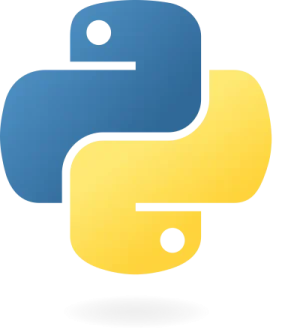Having mastered the basics of lists in Python, it’s time to put your skills to the test. Try solving the following exercises to solidify your understanding:
Exercise 1: Accessing List Items
Print the second item from the list of books:
books = ["1984", "The Great Gatsby", "To Kill a Mockingbird"]
print(books[1]) # Expected output: "The Great Gatsby"
Exercise 2: Modifying List Items
Change the value of the first item in the list to “Brave New World”:
books = ["1984", "The Great Gatsby", "To Kill a Mockingbird"]
books[0] = "Brave New World"
print(books) # Expected output: ['Brave New World', 'The Great Gatsby', 'To Kill a Mockingbird']
Exercise 3: Adding Items
Add “The Catcher in the Rye” to the end of the list:
books = ["1984", "The Great Gatsby", "To Kill a Mockingbird"]
books.append("The Catcher in the Rye")
print(books) # Expected output: ['1984', 'The Great Gatsby', 'To Kill a Mockingbird', 'The Catcher in the Rye']
Exercise 4: Removing Items
Remove “The Great Gatsby” from the list:
books = ["1984", "The Great Gatsby", "To Kill a Mockingbird"]
books.remove("The Great Gatsby")
print(books) # Expected output: ['1984', 'To Kill a Mockingbird']
Exercise 5: Inserting Items
Insert “Brave New World” at the second position:
books = ["1984", "The Great Gatsby", "To Kill a Mockingbird"]
books.insert(1, "Brave New World")
print(books) # Expected output: ['1984', 'Brave New World', 'The Great Gatsby', 'To Kill a Mockingbird']
Exercise 6: List Concatenation
Combine these two lists into one:
list1 = ["1984", "The Great Gatsby"]
list2 = ["To Kill a Mockingbird", "Brave New World"]
list3 = list1 + list2
print(list3) # Expected output: ['1984', 'The Great Gatsby', 'To Kill a Mockingbird', 'Brave New World']
Exercise 7: Copying a List
Create a copy of the list and modify it:
original = ["1984", "The Great Gatsby", "To Kill a Mockingbird"]
copied = original.copy()
copied.append("The Catcher in the Rye")
print(copied) # Expected output: ['1984', 'The Great Gatsby', 'To Kill a Mockingbird', 'The Catcher in the Rye']
Exercise 8: Sorting a List
Sort the list in ascending order:
numbers = [25, 42, 18, 7, 31]
numbers.sort()
print(numbers) # Expected output: [7, 18, 25, 31, 42]
Exercise 9: Reversing a List
Reverse the order of items in the list:
numbers = [1, 2, 3, 4, 5]
numbers.reverse()
print(numbers) # Expected output: [5, 4, 3, 2, 1]
Exercise 10: Counting Elements
Count how many times “1984” appears in the list:
books = ["1984", "The Great Gatsby", "1984", "To Kill a Mockingbird"]
count = books.count("1984")
print(count) # Expected output: 2
Exercise 11: Finding an Index
Find the index of “To Kill a Mockingbird” in the list:
books = ["1984", "The Great Gatsby", "To Kill a Mockingbird"]
index = books.index("To Kill a Mockingbird")
print(index) # Expected output: 2
Exercise 12: Extending a List
Extend the list with more books:
books = ["1984", "The Great Gatsby"]
more_books = ["To Kill a Mockingbird", "Brave New World"]
books.extend(more_books)
print(books) # Expected output: ['1984', 'The Great Gatsby', 'To Kill a Mockingbird', 'Brave New World']
Exercise 13: Popping Items
Remove the last item from the list and print it:
books = ["1984", "The Great Gatsby", "To Kill a Mockingbird"]
last_item = books.pop()
print(last_item) # Expected output: 'To Kill a Mockingbird'
Exercise 14: Removing by Value
Remove “1984” from the list:
books = ["1984", "The Great Gatsby", "To Kill a Mockingbird"]
books.remove("1984")
print(books) # Expected output: ['The Great Gatsby', 'To Kill a Mockingbird']
Exercise 15: List Comprehension
Create a list of the lengths of book titles:
book_lengths = [len(book) for book in ["1984", "The Great Gatsby", "To Kill a Mockingbird"]]
print(book_lengths) # Expected output: [4, 16, 21]
Exercise 16: Slicing a List
Extract a sublist from the second to the fourth item:
books = ["1984", "The Great Gatsby", "To Kill a Mockingbird", "Brave New World", "The Catcher in the Rye"]
sublist = books[1:4]
print(sublist) # Expected output: ['The Great Gatsby', 'To Kill a Mockingbird', 'Brave New World']
Exercise 17: Checking for Existence
Check if “Brave New World” is in the list:
books = ["1984", "The Great Gatsby", "To Kill a Mockingbird", "Brave New World"]
exists = "Brave New World" in books
print(exists) # Expected output: True
Exercise 18: Using While Loop
Print all items in the list using a while loop:
books = ["1984", "The Great Gatsby", "To Kill a Mockingbird"]
i = 0
while i < len(books):
print(books[i])
i += 1
# Expected output:
# 1984
# The Great Gatsby
# To Kill a Mockingbird
Exercise 19: Using For Loop
Print all items in the list using a for loop:
books = ["1984", "The Great Gatsby", "To Kill a Mockingbird"]
for book in books:
print(book)
# Expected output:
# 1984
# The Great Gatsby
# To Kill a Mockingbird
Exercise 20: Using List Methods
Apply various list methods to manipulate the list:
books = ["1984", "The Great Gatsby", "To Kill a Mockingbird"]
books.append("Brave New World")
books.remove("The Great Gatsby")
books.sort()
print(books) # Expected output: ['1984', 'Brave New World', 'To Kill a Mockingbird']
These exercises will help you practice and master different list operations in Python. Work through each challenge to enhance your skills!
